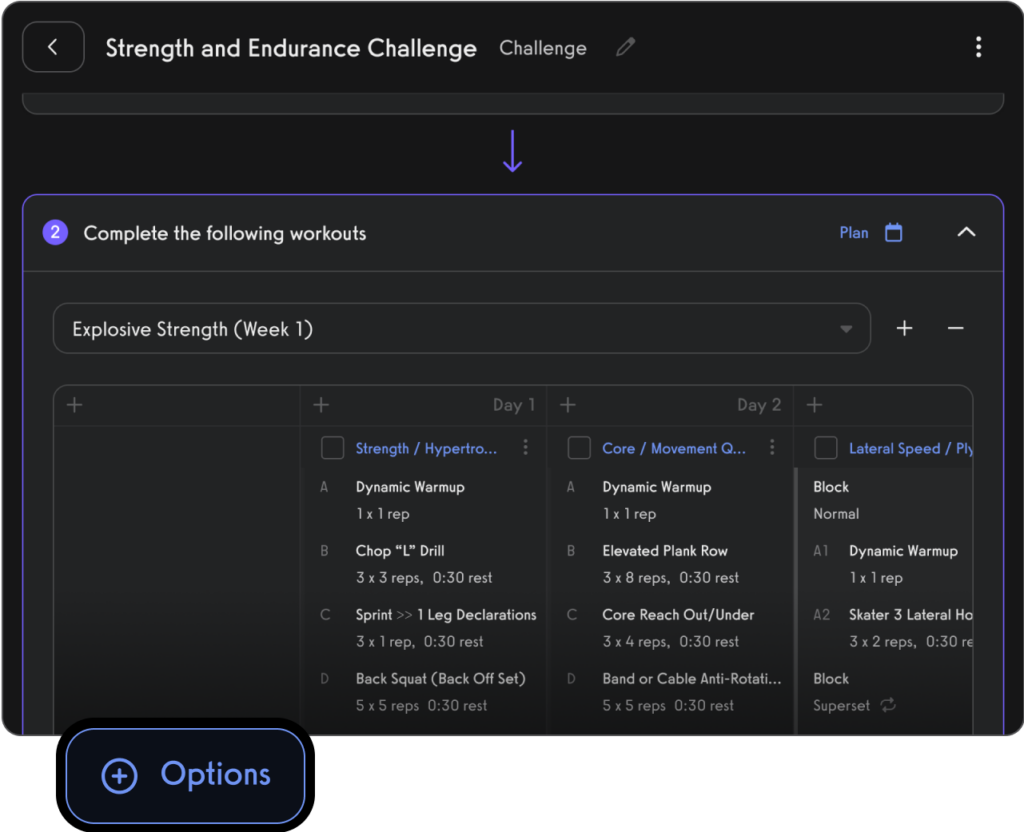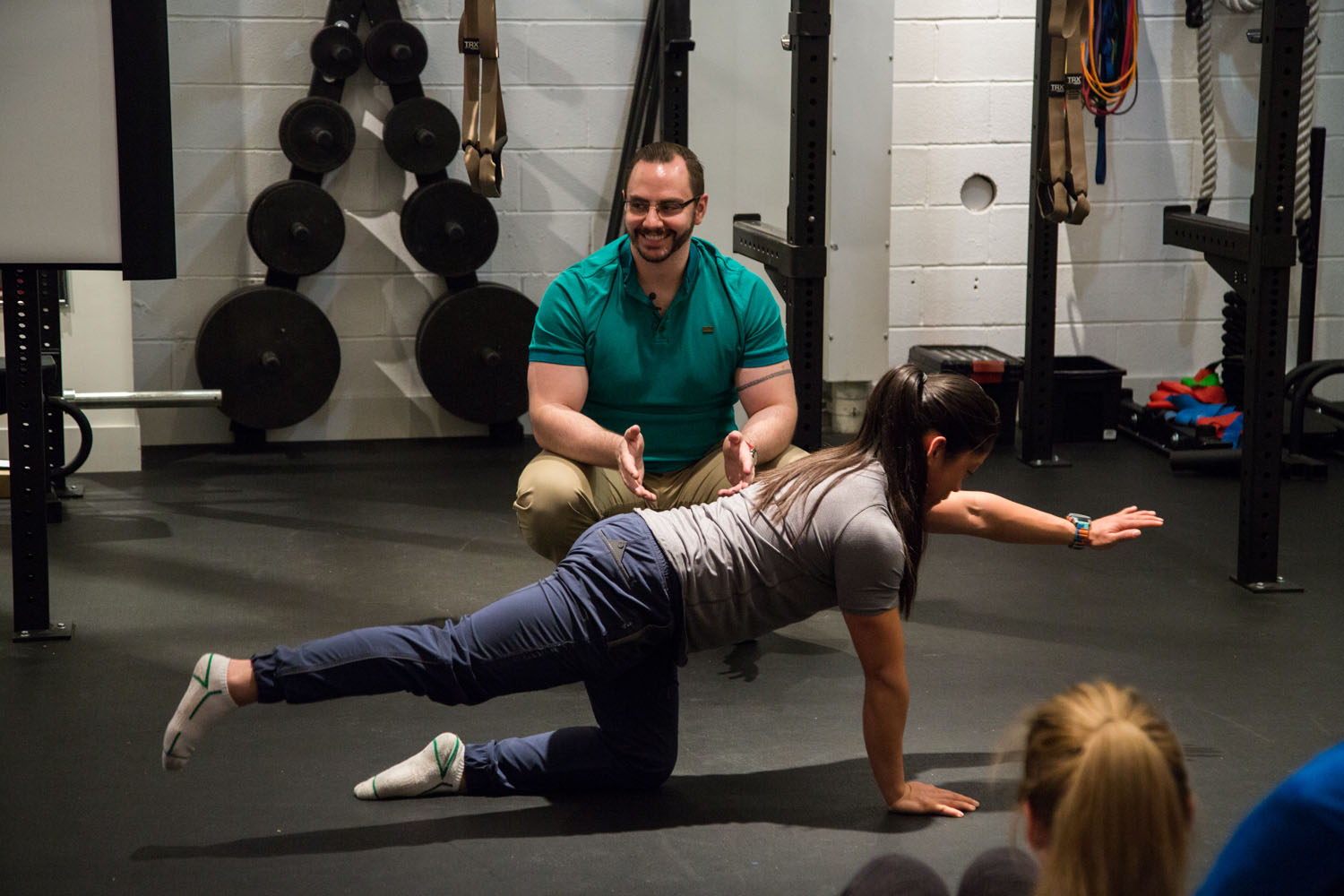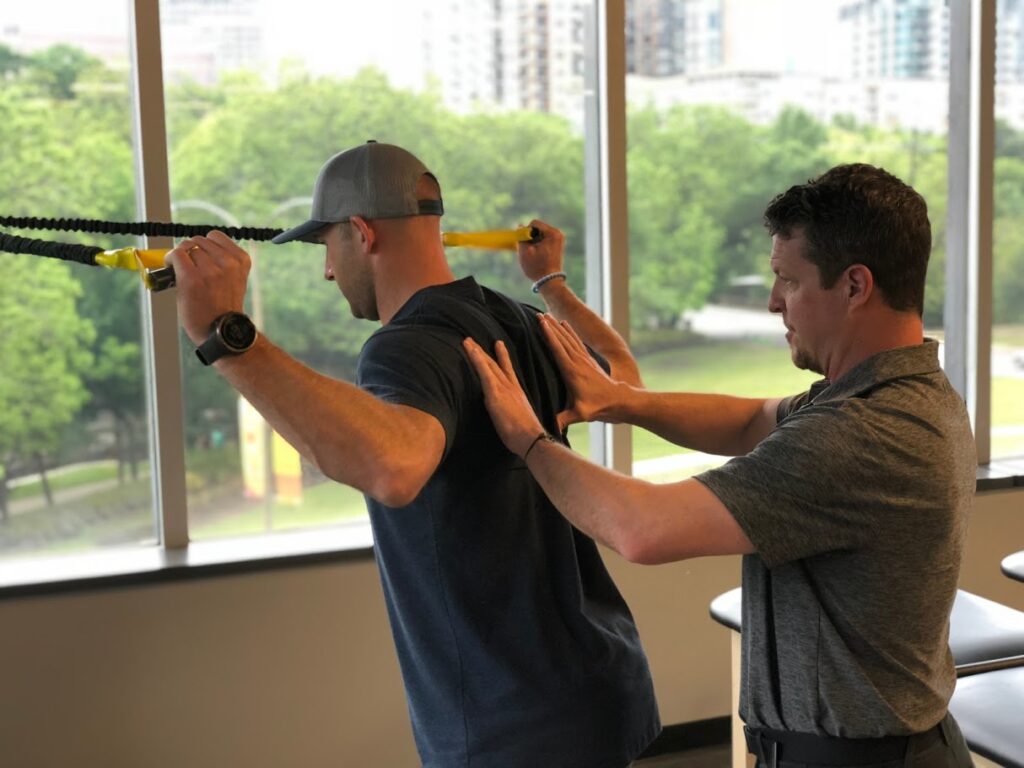IFPA Personal Training Certification Review (2025)
Read this IFPA Personal Training Certification Review to decide if the IFPA Personal Training Certification is worth it and what the best personal training certification is for you.

Welcome to our comprehensive review of the IFPA Personal Training Certification! In this article, if you are wondering is IFPA a good certification, what is IFPA fitness exactly, we will explore everything you need to know about the IFPA certification, from its benefits to its exam format, and from career opportunities to renewal requirements. Whether you are considering pursuing this certification or simply curious to learn more about it, we’ve got you covered with this IFPA CPT Review.
Discover the ins and outs of the IFPA Personal Training Certification through this comprehensive review. Whether you want to learn how to become a personal trainer, or learn how to become a fitness influencer, or learn how to open a gym, or learn how to start a fitness business, or anything in between, use the Exercise.com platform to accomplish your fitness business goals.

You can start an online personal training business, make a fitness app, learn how to make money selling workout plans online, put in-person personal training marketing ideas into action, use personal training income ideas to find personal trainer career options that will put you on track for the highest paying fitness jobs, and many other ways to make money from fitness doing what you love.
With the Exercise.com platform you have the best online fitness coaching software and the best software for fitness influencers all in one! (Not to mention the best gym software and the best personal training software).
Create workout plans.

Manage clients.


Run online fitness challenges.

Create and sell fitness memberships, products, and digital offers.

Manage, message, and market to your online personal training clients and leads.

All from your very own custom branded fitness apps.


IFPA Personal Training Certification
Before we delve into the specifics, let’s start with an overview of the IFPA. The International Fitness Professionals Association (IFPA) is a renowned organization dedicated to providing quality education and certifications for fitness professionals. Their Personal Training Certification is one of their flagship programs, designed to equip individuals with the knowledge and skills necessary to excel in the ever-evolving fitness industry.
IFPA Personal Training General Information
The IFPA Personal Training Certification is designed for individuals aspiring to start or enhance their career in personal training. Offered by the International Fitness Professionals Association (IFPA), this certification is focused on equipping candidates with the essential knowledge and skills needed to design and implement safe, effective, and personalized fitness programs for clients of various fitness levels and backgrounds.
- Recognized for its comprehensive curriculum that covers all fundamental aspects of personal training, including anatomy, physiology, exercise science, and client assessment.
- Ideal for both newcomers to the fitness industry and experienced professionals seeking formal certification to validate their expertise.
- The certification process involves in-depth study materials, a hands-on practical workshop, and a rigorous examination, designed to ensure a well-rounded understanding of personal training principles and practices.
- Graduates of this program are well-prepared to deliver personalized training services that effectively meet individual client goals, fostering health, fitness, and overall well-being.
IFPA Credibility and Reputation
The IFPA is renowned within the fitness industry for its dedication to high-quality education and its rigorous certification standards. The Personal Training Certification is underpinned by IFPA’s reputation for excellence, ensuring that certified professionals are recognized as knowledgeable and competent personal trainers.
- Known for its evidence-based approach to fitness education and commitment to ongoing professional development.
- The certification is widely accepted across gyms, health clubs, and wellness centers globally, enhancing the employability and professional growth opportunities for certified trainers.
- IFPA provides continuous support to certified professionals, including access to advanced training courses and a network of fitness experts, promoting lifelong learning and excellence in personal training.
Obtaining the IFPA Personal Training Certification signifies a professional’s commitment to quality and excellence in the field of personal training, enhancing their credibility and effectiveness as a fitness trainer.
IFPA vs Other Top Personal Trainer Certifications
Comparing the IFPA Personal Training Certification with other leading personal trainer certifications highlights its unique focus on practical application and comprehensive fitness education:
- IFPA Personal Training Certification: Emphasizes a holistic approach to personal training, covering a broad spectrum of fitness and wellness topics to prepare trainers for diverse client needs.
- NASM Certified Personal Trainer: Renowned for its Optimum Performance Training (OPT) model, focusing on functional training, performance enhancement, and corrective exercise.
- ACE Certified Personal Trainer: Focuses on a client-centered approach, incorporating behavior change strategies to help clients achieve sustainable fitness and wellness goals.
- IFPA’s certification stands out for its balanced curriculum that integrates scientific principles with practical training techniques, ensuring trainers are well-equipped to design and deliver effective fitness programs.
- Certified professionals benefit from IFPA’s extensive educational resources and professional development opportunities, keeping them at the forefront of the personal training industry.
- The certification prepares trainers to offer comprehensive fitness solutions, enhancing client satisfaction and success in achieving their health and fitness objectives.
Choosing the right personal trainer certification depends on your career aspirations, training philosophy, and the specific needs of your clientele. The IFPA offers a well-rounded certification that equips trainers for a successful career across various fitness environments.
Utilizing the best personal training software can greatly enhance a personal trainer’s ability to manage client schedules, track progress, and deliver personalized fitness plans, complementing the skills acquired through the IFPA Personal Training Certification.
IFPA Cost
The investment in the IFPA Personal Training Certification reflects its extensive curriculum and the professional value it offers. The cost includes study materials, participation in a hands-on workshop, and the examination fee.
- The comprehensive workshop provides practical experience and learning opportunities in personal training, enhancing the candidate’s readiness for the certification exam.
- Early registration discounts and package deals with other IFPA certifications or workshops may be available, offering additional value.
- The certification opens avenues for career advancement and increased earning potential in the personal training field, making it a worthwhile investment for serious fitness professionals.
While the cost may be significant, the professional development, credibility enhancement, and career opportunities provided by the IFPA Personal Training Certification justify the investment for individuals committed to excellence in personal training.
IFPA Personal Trainer Exam Content
The IFPA Personal Trainer exam is designed to assess a comprehensive understanding of personal training principles, including anatomy, exercise physiology, fitness assessment, and program design. The exam ensures trainers are well-prepared to work with clients effectively:
Foundations of Exercise Science
- In-depth coverage of human anatomy, physiology, and the biomechanics of movement.
- Understanding of energy systems, exercise physiology, and the adaptations to exercise.
Assessment and Program Design
- Skills in conducting comprehensive fitness assessments, goal setting, and health screening.
- Proficiency in developing personalized training programs based on client assessments and objectives.
Client Interaction and Professional Practice
- Best practices in client communication, motivation, and coaching techniques.
- Knowledge of ethical practices, professional conduct, and legal considerations in personal training.
IFPA Exam Prep and Study Materials
IFPA offers a variety of study materials and resources to prepare candidates for the Personal Trainer exam, accommodating different learning styles and needs:
- Detailed workshops led by experienced professionals, providing practical, hands-on training experiences.
- Comprehensive study guides and textbooks covering essential personal training topics and concepts.
- Online practice exams and quizzes to help candidates assess their readiness and familiarize themselves with the exam format.
Leveraging these study materials significantly increases a candidate’s confidence and readiness for the exam, ensuring a thorough understanding of personal training principles and practices.
IFPA Personal Trainer Certification Requirements
To obtain the IFPA Personal Trainer Certification, candidates must meet the following criteria:
- Successful completion of the IFPA Personal Trainer preparatory workshop, demonstrating proficiency in personal training principles and practices.
- Passing the IFPA Personal Trainer certification exam, showcasing a comprehensive understanding of fitness training, client assessment, and program design.
- Maintenance of current CPR and AED certifications from recognized organizations, ensuring readiness to respond to emergency situations.
These requirements guarantee that IFPA-certified personal trainers possess the knowledge, skills, and competencies necessary to provide high-quality training services, enhancing the health and fitness of their clients.
IFPA Personal Trainer Salary
Achieving the IFPA Personal Trainer Certification can significantly impact a fitness professional’s earning potential. Certified trainers are well-positioned to:
- Secure positions in prestigious fitness facilities, wellness centers, and private studios, where demand for qualified personal trainers is high.
- Command higher rates for personal training services, reflecting their certified expertise and the value they bring to client fitness programs.
- Diversify their income through specialized training offerings, group fitness classes, and online coaching, expanding their client base and income sources.
The IFPA certification enhances a personal trainer’s marketability and career prospects, leading to greater financial rewards and professional fulfillment in the field of fitness training.
Taking the Final IFPA Personal Trainer Exam
The culmination of the IFPA Personal Trainer Certification process is the final exam, which challenges candidates to demonstrate their mastery of personal training concepts and their ability to apply this knowledge in practice:
- The exam consists of multiple-choice questions covering the full spectrum of personal training knowledge, from exercise science to client relations.
- IFPA offers a proctored exam format, providing flexibility in scheduling and location for candidates, accommodating their individual needs and circumstances.
- Candidates who do not pass on their first attempt have the opportunity to retake the exam, ensuring that all certified trainers meet IFPA’s high standards of competence and professionalism.
Passing the exam is a significant achievement, marking a candidate’s readiness to deliver professional, effective personal training services and make a positive impact on clients’ health and fitness journeys.
IFPA Personal Trainer Continuing Education and Recertification
Maintaining the IFPA Personal Trainer Certification requires ongoing professional development through continuing education, ensuring that trainers stay current with industry trends, advancements, and best practices:
- Certified trainers must earn a specified number of Continuing Education Credits (CECs) within each recertification period, engaging in advanced learning and skill enhancement.
- IFPA offers a wide array of continuing education courses, workshops, and conferences, covering diverse topics in fitness, health, and wellness, supporting trainers in their professional growth and expertise development.
- Recertification ensures that IFPA-certified trainers continue to provide the highest quality training based on the latest exercise science, fitness trends, and ethical practices, maintaining their credibility and effectiveness as fitness professionals.
Engaging in continuous learning is essential in the dynamic field of personal training, ensuring that trainers remain knowledgeable, skilled, and competitive, and continue to deliver high-quality, evidence-based fitness services to their clients.
Other IFPA Offerings
Beyond the Personal Trainer Certification, IFPA offers various other fitness and wellness certifications and specializations, enabling trainers to broaden their expertise and service offerings:
- Group Exercise Instructor Certification: For those interested in leading dynamic and inclusive group fitness classes, enhancing their ability to engage and motivate diverse groups of participants.
- Specialty Certifications: Including areas such as nutrition coaching, senior fitness, youth fitness, and corrective exercise, allowing trainers to cater to specific client needs and interests, and diversify their training programs.
- Advanced Certifications: Such as the Master Personal Trainer Certification, providing in-depth knowledge and advanced skills for trainers seeking to excel in personalized, high-level fitness programming and client support.
Exploring these additional certifications and specializations can enrich a personal trainer’s skill set, offering clients a comprehensive and personalized approach to health and fitness, and supporting trainers in their career development and success in the fitness industry.
IFPA Personal Trainer Overall Rating
The IFPA Personal Trainer Certification is a comprehensive program that provides a solid foundation in personal training, combining scientific principles with practical application. It is designed to prepare fitness professionals for a successful career in personal training, ensuring they can deliver personalized, safe, and effective fitness programs that meet individual client needs and goals.
Pros
- A broad and comprehensive curriculum that covers essential aspects of personal training, from exercise science to client communication and program design, enhancing trainers’ knowledge and skills.
- The credibility and recognition of an IFPA certification enhance professional opportunities and client trust, signaling a trainer’s commitment to quality and excellence in personal training.
- Access to a wide range of study materials, continuing education courses, and a supportive professional community, supporting trainers in their ongoing learning and career development.
Cons
- The financial and time investment required for certification and ongoing education may be significant, but these investments are essential for professional growth, skill enhancement, and maintaining high standards of competence in personal training.
- The broad scope of the curriculum requires diligent study and preparation, demanding a strong commitment to excellence and continuous improvement in the field of personal training.
Overall, the IFPA Personal Trainer Certification is highly recommended for individuals committed to achieving excellence in personal training. It provides the necessary knowledge, skills, and credentials to make a positive impact on clients’ lives, promoting health, fitness, and wellness through personalized and effective training programs.
For personal trainers looking to enhance their service offerings and client management capabilities, integrating the skills acquired through IFPA certification with the best personal training software can provide a comprehensive solution for tracking client progress, scheduling sessions, and delivering customized fitness plans, ensuring a high-quality training experience for both the trainer and their clients.
What is the IFPA?
The IFPA, established in 1994, boasts a rich history and a solid reputation in the fitness community. It is committed to promoting professionalism and maintaining high standards in personal training. Their certifications are recognized globally, allowing certified trainers to pursue rewarding careers both locally and internationally.
When you become a part of the IFPA, you join a community of passionate fitness professionals who are dedicated to helping individuals achieve their health and fitness goals. The organization provides ongoing support and resources to its members, ensuring that they stay up-to-date with the latest industry trends and research.
Moreover, the IFPA offers a wide range of specialized certifications, allowing trainers to expand their knowledge and expertise in specific areas of fitness. Whether you’re interested in sports nutrition, senior fitness, or strength and conditioning, the IFPA has a certification program tailored to your interests.
Benefits of obtaining the IFPA Personal Training Certification
So, why should you consider obtaining the IFPA Personal Training Certification? Well, there are several compelling reasons. Firstly, it demonstrates your commitment to excellence and your dedication to ongoing professional development. By investing in your education and obtaining a reputable certification, you show potential clients and employers that you take your role as a fitness professional seriously.
Additionally, the IFPA Personal Training Certification enhances your credibility in the industry. As a certified trainer, you have acquired the necessary knowledge and skills to design safe and effective exercise programs, assess clients’ fitness levels, and provide expert guidance on nutrition and lifestyle choices. This expertise instills confidence in potential clients, making them more likely to trust you with their fitness journey.
Furthermore, the IFPA Personal Training Certification opens doors to a wide range of career opportunities. With this certification, you can work in various fitness settings, such as gyms, health clubs, and even as an independent personal trainer. You may also have the opportunity to work with diverse populations, including athletes, older adults, and individuals with specific health concerns.
Moreover, the IFPA provides ongoing support and resources to its certified trainers. They offer continuing education courses, workshops, and conferences, allowing trainers to stay updated with the latest industry advancements. This commitment to professional development ensures that IFPA certified trainers are always equipped with the most current knowledge and techniques, enabling them to provide the highest quality of service to their clients.
In conclusion, the IFPA Personal Training Certification is a valuable investment for any aspiring or experienced fitness professional. It not only equips you with the necessary knowledge and skills to excel in the fitness industry, but it also enhances your credibility, opens doors to various career opportunities, and provides ongoing support for your professional development. So, if you’re passionate about helping others achieve their fitness goals and want to establish yourself as a reputable fitness professional, consider obtaining the IFPA Personal Training Certification.
Requirements for the IFPA Personal Training Certification
Before embarking on your journey towards this certification, it’s essential to familiarize yourself with the requirements. The IFPA upholds certain prerequisites to ensure that candidates possess the necessary foundation to succeed in the program.
Educational background and prerequisites
Unlike some other certifications, the IFPA Personal Training Certification does not mandate a specific educational background. However, a solid understanding of anatomy, physiology, and exercise science is highly recommended to grasp the material effectively. Additionally, a high school diploma or equivalent is typically required.
When it comes to anatomy, personal trainers must have a comprehensive understanding of the human body. This includes knowledge of the skeletal system, muscular system, cardiovascular system, and other physiological processes. Understanding how the body works is crucial for designing effective workout programs tailored to individual needs.
Furthermore, a strong foundation in exercise science is essential for personal trainers. This includes understanding the principles of exercise physiology, biomechanics, and nutrition. By having a deep understanding of these concepts, trainers can develop safe and effective exercise programs that help clients achieve their fitness goals.
CPR and First Aid certification
To ensure the safety of clients, the IFPA requires all candidates to hold valid CPR and First Aid certifications. These certifications demonstrate your ability to respond effectively in emergency situations, a critical skill for any personal trainer.
Having CPR and First Aid certifications not only instills confidence in clients but also allows trainers to handle unexpected situations with calmness and competence. Whether it’s providing immediate care in the event of a cardiac arrest or managing minor injuries during a training session, these certifications equip trainers with the necessary skills to handle emergencies effectively.
Experience in the fitness industry
While not strictly mandatory, having some experience in the fitness industry can greatly contribute to your success in the program. Practical experience allows you to translate theoretical knowledge into real-world applications, making you a more competent and well-rounded personal trainer.
Real-life experience in the fitness industry provides trainers with valuable insights into the challenges and nuances of working with different clients. It helps trainers develop their coaching skills, understand client psychology, and adapt training techniques to suit individual needs. Moreover, practical experience can also enhance a trainer’s ability to motivate and inspire clients, fostering a positive training environment.
Whether it’s working as a fitness instructor, participating in sports, or volunteering in community fitness programs, any exposure to the fitness industry can be beneficial. It allows you to witness firsthand the impact of exercise on individuals and gain a deeper appreciation for the transformative power of physical activity.
The IFPA Personal Training Certification Exam
Now, let’s shift our focus to the certification exam itself. Understanding the exam format, preparing effectively, and utilizing appropriate study materials are essential for success.
When it comes to the IFPA Personal Training Certification exam, it is important to have a clear understanding of the format and structure. The exam consists of multiple-choice questions that assess your knowledge in various areas. These areas include anatomy, physiology, exercise science, nutrition, program design, and client assessment. It is a comprehensive test that evaluates your understanding of both theoretical concepts and practical applications.
Studying for the IFPA exam can seem like a daunting task, but fear not! The IFPA provides candidates with a variety of study materials and resources to aid in exam preparation. From textbooks to online courses, you will have access to comprehensive materials designed to enhance your understanding of the subject matter. These resources are carefully curated to ensure that you have all the necessary information at your fingertips.
Preparing for the IFPA exam requires diligent effort and strategic planning. Here are a few tips to help you make the most of your study time:
- Develop a study schedule and stick to it. Creating a structured plan will help you stay organized and ensure that you cover all the necessary material.
- Break down the material into smaller, manageable chunks. Trying to tackle everything at once can be overwhelming. By breaking it down, you can focus on one topic at a time and fully grasp the concepts.
- Utilize a variety of study resources to reinforce your understanding. Reading textbooks, watching instructional videos, and attending study groups can all contribute to a well-rounded understanding of the material.
- Take practice exams to familiarize yourself with the format and identify areas for improvement. Practice makes perfect, and taking mock exams will help you become more comfortable with the types of questions you may encounter.
- Seek support from fellow candidates or experienced trainers who have already obtained the certification. Connecting with others who are going through the same process or have already been through it can provide valuable insights and support.
By following these tips and dedicating yourself to the study process, you can increase your chances of success on the IFPA Personal Training Certification exam. Remember, preparation is key, and the more effort you put in, the more confident and knowledgeable you will become.
Review of the IFPA Personal Training Certification
Now that we have covered the exam, let’s take a closer look at the content covered in the certification and evaluate its level of difficulty, rigor, and industry recognition.
Content covered in the certification
The IFPA Personal Training Certification covers a wide range of topics relevant to the personal training profession. From foundational principles to advanced program design, the curriculum aims to equip you with a comprehensive understanding of the science behind effective training.
One of the key areas covered in the certification is anatomy and physiology. Understanding how the body works and how different muscles interact is crucial for designing safe and effective exercise programs. The certification dives deep into the various systems of the body, such as the cardiovascular, respiratory, and musculoskeletal systems, ensuring that you have a solid foundation in human anatomy.
In addition to anatomy and physiology, the certification also covers nutrition and exercise science. You will learn about the different macronutrients and micronutrients, their functions, and how they contribute to overall health and performance. Understanding the principles of exercise science, such as energy systems, muscular adaptations, and the principles of training, will enable you to design personalized programs that cater to your clients’ specific needs and goals.
The certification also delves into topics like client assessment and program design. You will learn how to conduct thorough assessments to identify your clients’ strengths, weaknesses, and any potential limitations or injuries. Armed with this knowledge, you will be able to create tailored exercise programs that address your clients’ individual needs and help them achieve their desired results.
Level of difficulty and rigor
The IFPA exam is known for its challenging nature, ensuring that only well-prepared and knowledgeable individuals receive the certification. The comprehensive curriculum demands a deep understanding of the subject matter, both from theoretical and practical perspectives.
Throughout the certification process, you will be required to demonstrate your knowledge through written exams, practical assessments, and case studies. These assessments are designed to test your understanding of the material and your ability to apply it in real-world scenarios. The rigorous nature of the certification ensures that you are well-equipped to handle the complexities of personal training and provide the highest level of service to your clients.
While the certification may be challenging, it also offers a rewarding learning experience. The in-depth study materials and hands-on training opportunities allow you to expand your knowledge and skillset, making you a more competent and confident personal trainer.
Reputation and recognition in the fitness industry
The IFPA Personal Training Certification is highly regarded in the fitness industry. Professionals holding this certification are recognized for their high level of expertise and commitment to professional excellence. Employers value the IFPA certification when seeking qualified personal trainers, giving you a competitive edge in the job market.
Having an IFPA certification not only enhances your credibility as a personal trainer but also opens up opportunities for career advancement. Many fitness facilities and health clubs prefer hiring trainers with reputable certifications, and the IFPA certification stands out among the best.
Furthermore, the IFPA is recognized by various industry organizations and associations, further solidifying its reputation in the fitness community. This recognition adds to the value of the certification and validates the knowledge and skills you acquire throughout the certification process.
Career opportunities with the IFPA Personal Training Certification
One of the key considerations when choosing a certification is the career opportunities it can unlock. Let’s explore the employment prospects, earning potential, and avenues for advancement with the IFPA Personal Training Certification.
Employment prospects and job market demand
The demand for qualified personal trainers continues to grow as individuals prioritize their health and well-being. In today’s fast-paced society, people are increasingly aware of the importance of maintaining a healthy lifestyle and seek professional guidance to achieve their fitness goals. With the IFPA Personal Training Certification under your belt, you can explore a variety of employment options, ranging from corporate wellness programs to private training studios.
Corporate wellness programs have gained popularity in recent years as companies recognize the importance of promoting employee well-being. Many organizations now offer personal training services as part of their employee wellness initiatives, providing an opportunity for certified trainers to work in a corporate setting. This can involve conducting group fitness classes, designing personalized exercise programs, and offering nutritional guidance to employees.
In addition to corporate wellness programs, private training studios provide another avenue for certified personal trainers. These studios cater to individuals who prefer a more personalized and focused approach to their fitness journey. As a personal trainer in a private studio, you have the opportunity to build strong relationships with your clients and tailor your training programs to their specific needs and goals.
Potential salary and income as an IFPA-certified personal trainer
While salary varies based on factors such as location, experience, and clientele, possessing the IFPA certification significantly increases your earning potential. As a certified personal trainer, you can leverage your expertise and reputation to command higher rates and attract a wider client base.
In major metropolitan areas where the demand for personal trainers is high, the earning potential can be particularly lucrative. With a solid client base and a reputation for delivering results, you can charge premium rates for your services. Additionally, as you gain experience and establish yourself as a top-notch trainer, you may have the opportunity to work with high-profile clients, further boosting your income.
Moreover, the personal training industry offers various avenues for additional income. Beyond one-on-one training sessions, you can explore opportunities such as group fitness classes, online coaching, and creating fitness programs or products. These additional income streams can contribute to your overall financial success as a certified personal trainer.
Advancement and specialization options with the certification
One of the advantages of the IFPA Personal Training Certification is the flexibility it offers in terms of specialization. Once certified, you can choose to focus on areas such as sports performance, weight management, or rehabilitative training. Specializing enhances your marketability and allows you to cater to specific client needs.
If you have a passion for working with athletes, specializing in sports performance training can open doors to opportunities in professional sports teams, college athletic programs, or even individual athletes seeking to improve their performance. This specialization requires a deep understanding of sports-specific training techniques, injury prevention strategies, and nutrition tailored for athletes.
Weight management is another specialization option that can be highly rewarding. With obesity rates on the rise, many individuals are seeking guidance in managing their weight and improving their overall health. As a certified personal trainer specializing in weight management, you can provide personalized exercise plans, nutritional guidance, and ongoing support to help clients achieve their weight loss goals.
Rehabilitative training is a specialized field that focuses on helping individuals recover from injuries or manage chronic conditions. With the IFPA Personal Training Certification, you can gain the knowledge and skills necessary to work alongside physical therapists and healthcare professionals to create safe and effective exercise programs for clients with specific rehabilitation needs.
By specializing in a particular area, you position yourself as an expert in that field, which can lead to increased demand for your services and the opportunity to work with a diverse range of clients.
Maintaining and renewing the IFPA Personal Training Certification
Obtaining the IFPA Personal Training Certification is just the beginning of your professional journey. To maintain your certification, you must fulfill certain requirements and stay engaged with industry advancements.
Continuing education requirements
The IFPA mandates continuing education to ensure that certified trainers stay up to date with the latest research, trends, and best practices in the field. By accumulating a specified number of continuing education units, you can renew your certification and demonstrate your commitment to ongoing professional growth.
Renewal process and fees
Renewing your IFPA Personal Training Certification is a straightforward process. By submitting the necessary documentation and paying the renewal fee, you can extend the validity of your certification and continue enjoying its benefits.
Benefits of staying current with the certification
Staying current with the IFPA certification provides numerous advantages. It allows you to remain knowledgeable about emerging industry trends, expand your skill set, and maintain your marketability as a highly regarded fitness professional. Additionally, the IFPA offers exclusive resources and networking opportunities to keep certified trainers connected and informed.
The IFPA Personal Training Certification is a valuable and respected credential for aspiring and established fitness professionals. With its rigorous exam, comprehensive curriculum, and industry recognition, it equips individuals with the knowledge and skills needed to thrive in the dynamic world of personal training. Whether you’re seeking new career opportunities or aiming to enhance your existing expertise, the IFPA certification is undoubtedly worth considering.
Final thoughts on the IFPA Personal Training Certification
Deciding on the right certification for your career can be a daunting task. Ultimately, it boils down to your goals, aspirations, and commitment to professional growth. Take the time to evaluate your needs, explore the IFPA Personal Training Certification in-depth, and make an informed decision.
So, is the IFPA Personal Training Certification right for you? While we provided you with an extensive review of the IFPA Personal Training Certification, the answer to this question ultimately lies within you. Consider your passion for fitness, your career goals, and how this certification aligns with your aspirations. By carefully weighing the pros and cons, you can determine if the IFPA Personal Training Certification is the right path for you.

For the IFPA Personal Training Certification, let’s address the full set of questions, tailored to the context of this certification:
What is the IFPA Personal Training Certification?
The IFPA Personal Training Certification is a credential offered by the International Fitness Professionals Association, designed for individuals seeking to establish a career in personal training. This certification covers a broad range of topics essential for personal trainers, including anatomy, physiology, exercise programming, nutrition, health screening, and client consultation techniques. The program aims to equip candidates with the knowledge and skills necessary to design and implement safe, effective, and personalized fitness programs for clients of various fitness levels and backgrounds.
Is the IFPA Personal Training Certification worth it?
Yes, the IFPA Personal Training Certification is worth it for those looking to enter the personal training profession with a solid foundation of knowledge and skills. The IFPA is known for its rigorous standards and comprehensive curriculum, which can enhance your credibility as a personal trainer. This certification can open doors to employment opportunities in gyms, wellness centers, and private practice, and it lays the groundwork for further specialization and career advancement in the fitness industry.
Who should get the IFPA Personal Training Certification?
The IFPA Personal Training Certification is ideal for:
- Individuals aspiring to start a career in personal training.
- Fitness enthusiasts seeking to turn their passion for fitness into a profession.
- Health and wellness professionals, such as physical therapists or nurses, looking to expand their service offerings to include personal training.
- Current fitness instructors or coaches who want to enhance their qualifications and deepen their understanding of personal training.
How difficult is the IFPA Personal Training exam?
The difficulty of the IFPA Personal Training exam can vary based on an individual’s background in fitness, anatomy, and physiology. The exam is designed to assess a comprehensive understanding of personal training principles, including exercise science, nutrition, and client assessment. Candidates with a strong preparation and a good grasp of the certification materials typically find the exam challenging but manageable. Thorough study and practical application of the concepts are key to successfully passing the exam.
How credible is IFPA?
The IFPA (International Fitness Professionals Association) is a credible and respected organization in the fitness industry, known for its high-quality certification programs and commitment to promoting excellence in fitness education. The IFPA Personal Training Certification is internationally recognized and adheres to the standards of leading fitness and health organizations, making it a reputable credential for aspiring personal trainers.
How many people pass the IFPA Personal Training exam on the first try?
Specific pass rate statistics for the IFPA Personal Training exam are not publicly disclosed by the IFPA. However, like most professional certification exams, the pass rate is influenced by the candidate’s preparation, familiarity with the exam content, and test-taking strategies. Comprehensive study and practical experience can significantly increase the likelihood of passing on the first attempt.
What is the pass rate of the IFPA Personal Training exam?
The IFPA does not publicly share specific pass rate data for their Personal Training exam. Pass rates can vary widely based on the preparation level of the candidates and their background in exercise science. Candidates are encouraged to thoroughly prepare for the exam to maximize their chances of success.
Is IFPA or another organization better for personal training certification?
Whether the IFPA or another organization is better for personal training certification depends on individual career goals, learning preferences, and the specific focus of the certification program. The IFPA is recognized for its comprehensive approach to fitness education, making it a strong choice for those seeking a well-rounded personal training certification. However, comparing program curricula, accreditation, and industry recognition is important to determine the best fit for your professional development.
Is the IFPA Personal Training test open book?
The IFPA Personal Training exam is typically not open book. It is designed to assess the candidate’s mastery of personal training principles and their ability to apply this knowledge in practice without external aids. This ensures that certified professionals have a solid understanding of the necessary concepts to provide safe and effective training.
How many times can you fail the IFPA exam?
IFPA allows candidates to retake the Personal Training exam if they do not pass on their first attempt. The organization may have specific policies regarding retake fees and waiting periods, so candidates are advised to check with IFPA for the most current retake policies.
What can I do with an IFPA Personal Training Certification?
With an IFPA Personal Training Certification, you can:
- Work as a certified personal trainer in gyms, health clubs, and fitness centers.
- Start your own personal training business, offering one-on-one or group training sessions.
- Specialize in niche areas of fitness, such as weight loss, athletic performance, or senior fitness, by pursuing further IFPA specialty certifications.
- Provide online personal training services, expanding your reach to clients worldwide.
How much does the IFPA Personal Training Certification cost?
The cost of the IFPA Personal Training Certification can vary based on factors such as study materials, workshop attendance, and exam fees. Prices may range from $400 to $600, but it’s advisable to
check the IFPA’s official website or contact them directly for the most current pricing and package options.
What happens if you don’t pay IFPA?
Failure to fulfill payment obligations to the IFPA for the Personal Training Certification or any associated fees may result in the withholding of certification materials, exam eligibility, or the revocation of certification status. It’s important to adhere to IFPA’s payment policies to maintain good standing and access to professional resources.
How long is the IFPA Personal Training Certification good for?
The IFPA Personal Training Certification, like many professional certifications, requires renewal to maintain its validity. The standard renewal period is two years, during which certificants must complete continuing education credits and pay a recertification fee to keep their certification active and up-to-date.
What are the best personal training certifications?
The best personal training certifications are those that are accredited, widely recognized within the industry, and align with your career goals. Alongside the IFPA, other reputable organizations include NASM, ACE, ISSA, and ACSM. Each offers unique specializations and educational approaches, so it’s important to research and compare to find the best fit for your professional development.
Read More: Best Personal Training Certifications
How can I learn how to become a personal trainer?
To become a personal trainer:
- Gain a strong foundation in exercise science, anatomy, and physiology.
- Choose a reputable personal training certification like the IFPA and study the certification materials thoroughly.
- Pass the certification exam to validate your expertise.
- Gain practical experience through internships, mentorships, or working in fitness facilities.
- Pursue continuing education and additional certifications to specialize and stay current in the field.
Read More: How to Become a Personal Trainer
How can I start an online personal training business?
To start an online personal training business:
- Define your target market and services, considering areas like virtual one-on-one training, group sessions, or specialized fitness programs.
- Obtain a reputable certification, such as the IFPA Personal Training Certification, to enhance your credibility.
- Choose a comprehensive platform like Exercise.com to manage your clients, deliver workouts, track progress, and handle payments.
- Build an online presence through a professional website and social media to attract and engage potential clients.
- Create high-quality, personalized fitness programs and use digital marketing strategies to promote your services.
Read More: How to Start an Online Personal Training Business
How can Exercise.com help me run a successful personal training business?
Exercise.com can help you run a successful personal training business by providing an all-in-one platform that includes client management tools, customizable workout plan creation, scheduling capabilities, progress tracking, and integrated payment processing. Its versatile features support a wide range of training modalities and client types, making it an ideal solution for personal trainers looking to expand their services online, including those with IFPA certification.












